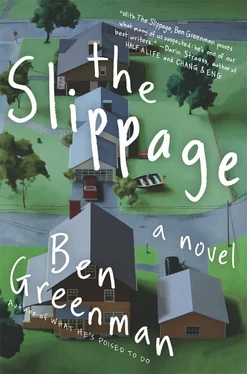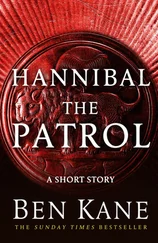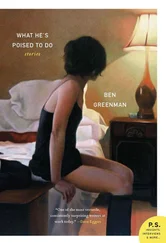There was a silence. “Where are you guys coming from?” William said.
“Chicago,” Stevie said.
“Great city,” William said. “I haven’t been there for years.” He grimaced. What if that remark wound its way back to Louisa? He would write it off as a misunderstanding. Everything is not always perfectly understood. His foot was scuffing faster now. A brown parcel-post truck rumbled around the corner. It was probably headed for the Zorillas’; the wife had lost her job and was working from home, buying and selling collectibles. But it pulled up at the head of William’s driveway and a young black man with dreadlocks hopped out. “Oh, look, a package,” William said. “I should go get that.” He bid a quick good-bye and went back to his house. The package was addressed to Louisa, a box of unrevealing size and weight from a catalog house he didn’t recognize. He carried it inside, flipping a waist-height wave back across the street, but the door was already closed.
That night, he and Louisa were watching TV, a crime drama they had joined halfway through and were trying to piece together. “Your phone,” Louisa said. William shook his head and let it ring. Later in the bathroom, he checked for a message; there was none, but he had her number now. He slept encircled by the memory of Emma as she stood there in the doorway, saying his name like a question.
Louisa was up before him, already in the kitchen, menacing the coffeemaker. “This machine,” she said murderously. “It won’t listen.”
The old machine had expired with an electrical puff. “I’ll get a new one,” William said, but he preferred store-bought coffee, and so he forgot, and Louisa reminded him, and he forgot again, and finally she sighed with exasperation and said she was going online to call in the cavalry.
The cavalry, which had been designed by an award-winning Swiss architect, was a chrome sphere with a recessed instrument panel that promised, according to the box, “total control over the coffee-making experience.” For the moment, it seemed to be exercising total control over Louisa. “Damn it,” she said. “I can’t get this to do what it’s supposed to do.” She put both hands on the sphere and lifted it off the table as if it were a head.
“Which is?”
“Turn on?”
A piece that looked important gleamed on the counter. “Maybe that’s something,” William said.
“That’s from the old one. I think. Or the rice cooker. I don’t know.” Louisa returned the head to the counter and scooped food into the dog’s dish. She had set out a small bowl of cereal for William and a glass decorated with the Statue of Liberty. “So what’s your day like?”
William filled his glass up to the crown. “I don’t know. The usual. Tote that barge, lift that bale.” He began to hum.
“Don’t sing,” she said. “I don’t want to have to stay in a hotel.” Marriage, having grown tired of labor, resupplied old plots and conflicts, snippets of familiar dialogue. “It could be worse. At least you don’t have to deal with curators all day long. Nothing’s worse than a female martinet.”
“You’re going to have to help me out with that one,” he said. “I failed zoology.”
Louisa laughed, but only briefly, and William moved into the space the silence created. “Hey,” he said. “I ran into Eddie Fitch and he invited us to a party. It’s a theme party, kind of.”
“They always are,” Louisa said. “What’s this one?”
“Southern Christmas.” It was based on something that Helen Hull had told Gloria: “She was talking about how when she was growing up in Manitoba, she had so many signs that autumn was changing into winter. Now there’s no good way to tell.”
“So Gloria decided to do it for her?”
“I guess.” William opened the gate the rest of the way. “It’s kind of a welcome-wagon party for the new people, too, I think. Have you met them yet?”
“Not really,” Louisa said. “So this will be a good way.” She put the butter back.
“Yeah,” William said. But he pinched the bridge of his nose when he said it. An old affair across the street: it was a secret he had to keep, a spot of frostbite on his memory. Tom had said that conventional morality left something to be desired, but William thought the problem was that it left nothing to be desired. It was a dull steady heartbeat that trailed off over time. In Chicago, he had put the paddles to this slowly dying heart. He had clobbered his expectations of himself and then convinced himself not to think about the consequences. But now the past had surfaced, and there was movement in water he needed to be placid.
Louisa cleared his bowl and glass from in front of him and then started in on the counter: she folded up a newspaper, rolled up catalogs she didn’t want, dumped them all into the garbage. “I hope there was nothing in there for me,” he said. He hadn’t brought up the issue of the mail since she had left the bag on the counter, and things seemed back in swing, with a steady stream of publications they didn’t need.
She leaned across him to get the pitcher of water. She had missed a button on her nightshirt and he widened the opening. “Hey.” Louisa gripped him at his wrist. “Got to go,” she said. “I’ve got bales of my own to lift.” The museum was opening an exhibit on the history of local signage. Louisa had written the wall text and had to proof the plaques before they were placed. One night, Tom had come by to help her out with what he called “the intentionally dead language of museum writing.” He pretended to be cynical, took on a tone, but William heard something else instead: Tom’s pride in his sister.
“Ready to go,” William said. “I need to be at the office fifteen minutes ago.” He had Loomis work to do. It was piled up on his desk, heating up the place. “So we’re not going to get any coffee from this UFO?”
“I’ll return it,” Louisa said. “But I’m very disappointed. I thought Swiss engineering was the best in the world.”
“I don’t see how,” William said. “Even their cheese has holes.”
Louisa untangled her purse strap from the back of the kitchen chair. “You want to walk out with me?”
“I’m not quite ready.” He figured he could take a few minutes to watch the house across the street, maybe catch sight of Emma. He’d seen her the night before, coming in from a supermarket trip. She was wearing a tank top and he got the curve of her shoulder into his mind and couldn’t get it out.
William went to the den, took a magazine from the table. He noticed, maybe for the first time, that the design on the wallpaper was a four-blade pinwheel cornered by a quartet of birds. He surveyed the rest of the room. There was the shallow blue ceramic vase on the windowsill, the strange broken-neck lamp over the recliner. How could he fairly move to a new house when he knew so little about this one?
He lay down on the couch and balanced his phone on his chest. Suddenly it buzzed, a tiny heart attack. William flipped the phone open. It was a text from Louisa. “Make sure water bowl before you go,” it said. “Dog thirsty.”
William gazed out his office window into the park across the street and wondered what it had all looked like a thousand years before, and whether the change had been for the better. To his left was a legal pad on which he had block-printed the name O’SHEA, then crossed it out and written LOOMIS. He turned to his computer, opened up the brochure file, and got to it. He needed to create the impression that any TenPak investor, but especially a principal, was in for the ride of his life. He moved words from one sentence to another, shifted punctuation. He polished the paragraph until he could almost see himself in it.
Читать дальше












